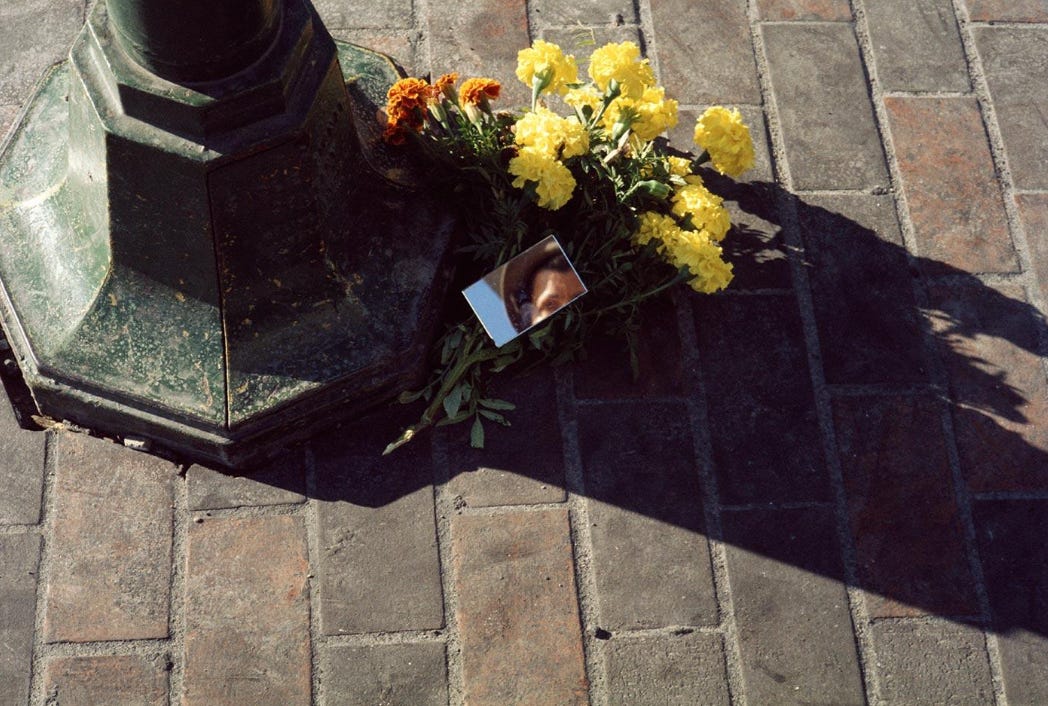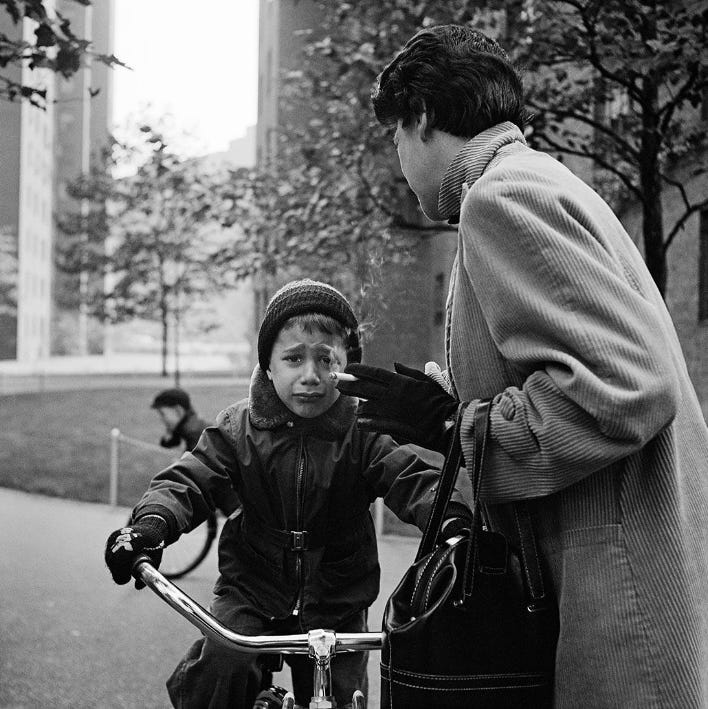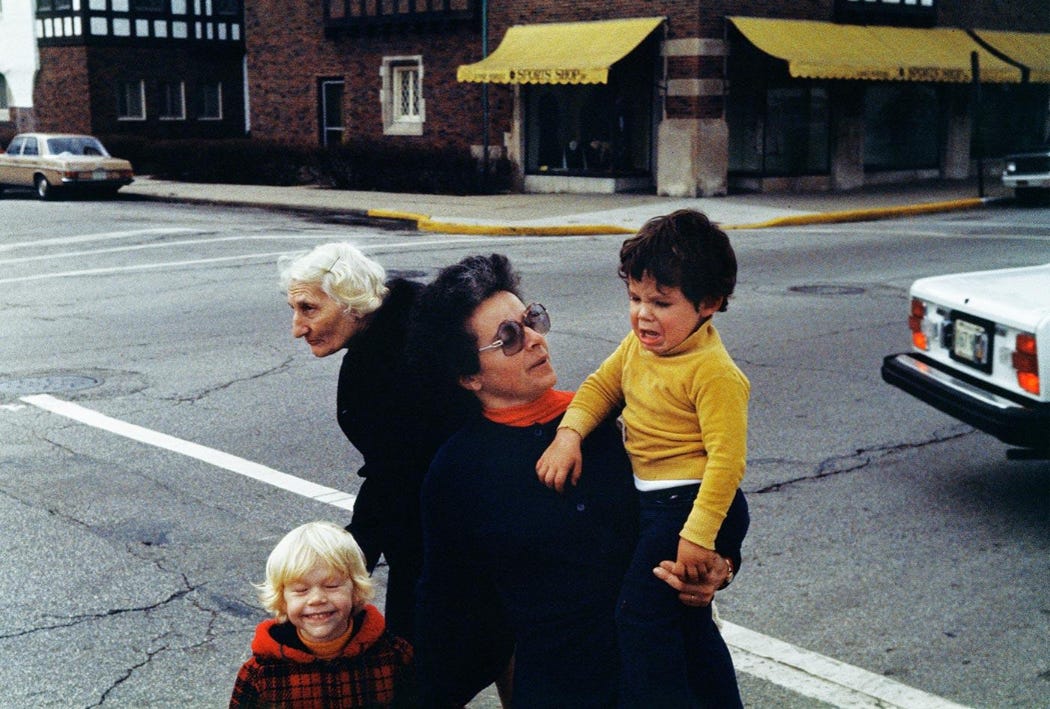and if no one is watching?
*a photo essay about Vivian Maier*
In the beginning, there was something instead of nothing, and that something was a joke.
We know the world to be a beautiful and pained place. In these things we perceive our own mortality, the opaque backing to the jeweled mirror in our palm. The song ends. The light goes out. Everyone else carries on.
Vivian Maier was Chicago’s greatest street photographer. She united the tragedy and absurdity and joy of city life into singular, electrifying pictures. They are witty and sad and there’s almost always someone in the shot not paying attention. How alone we are, they say. How together.
Her photographs speak to that particular metropolitan joy - to exist among multitudes, to walk about and notice the things that you notice, to come up with a joke about a stranger that only a particular friend would understand. That friend is 2,000 miles away. The joke is for yourself.
We believe in our centrality - the irrefutable ego - but in doubtful moments, the special joy of our particular being might dim. One day, Mrs. Dalloway decided she would buy the flowers herself. Is that it, though? Is that enough?
It’s not just that she bought the flowers; it’s that we know she did. If we didn’t know about it, would that change things?
A man pauses before me on a sidewalk to freestyle. A squirrel marches away with hotdog bun. That song in the bodega played at my bar mitzvah. I write down a clever thought. I commit a grocery list to memory. When I smile, does something else smile? If I encounter beauty, does it leave a mark?
This day will pass and there will hardly be a record. There is so much noise, the omnidirectional pain. Who would even dare take a stab at meaning?
Vivian Maier lived from 1926-2009. She spent her life (working mainly as a nanny in the Chicago suburbs) in artistic obscurity. She made no effort to exhibit her work, and the people who knew her didn’t even know she was a photographer. Well, the children she cared for did. She often brought her charges with her on excursions to Chicago to photograph city life. She had a special way with children.
In fact, in many of her photos, it is only the children that seem to be aware that she is watching them. Maybe this is part of the reason she appears to me as a sort of ghost, a spectral presence only perceptible to the most sensitive creatures.
Above all, everything is funny. And even the agony and heartbreak is only a few feet away from humor.
And that only a couple yards away from total indifference.
Maier’s own life was more darkness than light, slashed through with stories of abuse, of isolation and anger and near-destitution at the very end. Yet she managed to build an existence with ample room for her art. With that space, she chose to make a fine picture of what it’s like to be a human being.
I don’t think she ever wanted these photos to be shown. John Maloof is the man who discovered her 150,000 odd negatives in a storage auction shortly after her death and recognized their incredible merit. He has spent two decades advocating for her work. I’m grateful for what he’s done, even as it strikes me as sort of a violation.
But Maier herself dealt in violation. All photography is a sort of theft. Especially this genre - taking our most intimate moments and imbedding them in a gelatin emulsion. Making a story out of them. Making them known.
The transgression is the point. It’s a magpie magic, glittering and precious and always stolen. In her most virtuosic shots, the viewer finds a dazzling bouquet of personalities, distinct yet linked, held delicately by a single moment in time.
Perhaps the real gift of this work is the idea that there is somebody watching. Somewhere out in the world there is a strange woman - an outcast, a reject, with no friends to speak of - who sees you as you are in this moment, in the middle of a bustling life that barely has need of you, and decides to click the shutter.
She inscribes you in the ledgers of beauty, consummates the delightful unlikeliness of your existence. She offers a promise of belonging - one that she herself was not offered - to our world of contradictions and strangeness and abundant humor. Always changing, always contested, and full of light.
All photos are taken from vivianmaier.com. I highly recommend the documentary Finding Vivian Maier.















Great article, the photos are amazing